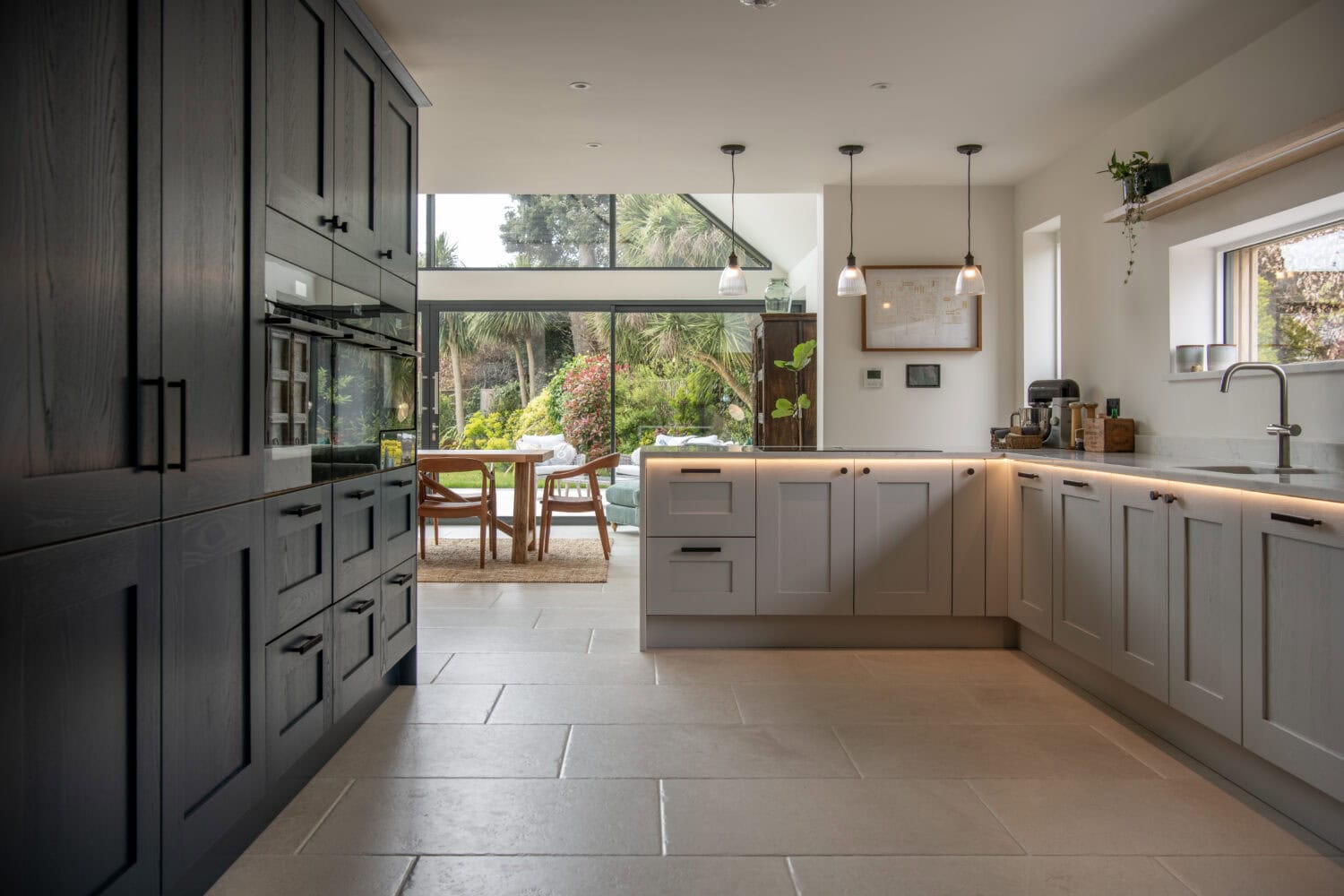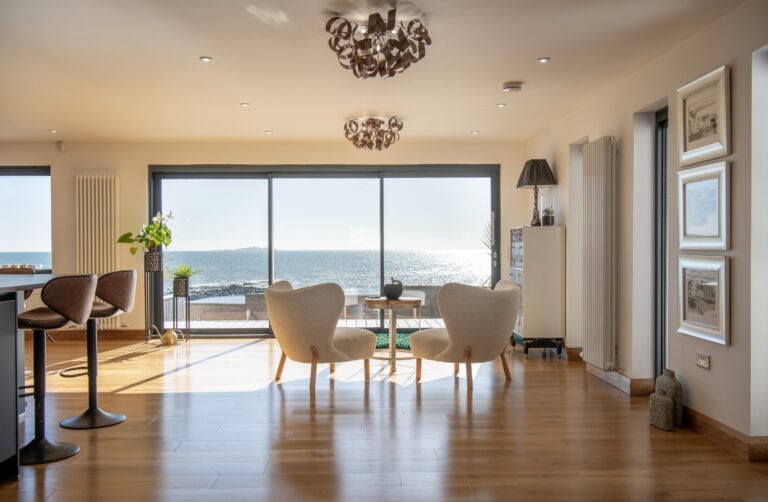The top reasons behind home extension rows in the UK
Disagreements between neighbours can arise for a variety of reasons, but home extensions and renovations are a common trigger, due to concerns like boundaries, noise, privacy, parking, and design differences.
But just which of the many reasons behind neighbourly arguments around home extensions are the most common?
To find out, we conducted a survey of 1,000 British homeowners, to shed light on the core reasons behind home extension rows, including details on how long the average row drags on for, as well as whether or not satisfactory resolutions were met.
Not only that, but we also obtained insights from an expert on what to think about when planning an extension to avoid clashing with your neighbours!
The majority of Brits engage in heated talks over home extensions
The results were telling when it comes to home extensions! Our survey revealed that a huge 60% of respondents reported engaging in heated discussions with their neighbours over home extensions. Alarmingly, 33% of homeowners proceeded to go ahead with their extension without informing their neighbours beforehand.
The duration of these disputes varied, with 38.3% of participants stating the fallout lasted up to one month, 27.2% extending to one week, and 22.8% persisting for up to six whole months!
The resolutions were also wide-ranging, with 55% of survey respondents providing explanations, 32.8% offering to showcase their extension to their neighbour, 12.8% resorting to legal validation, and 10.6% inviting said neighbours to their housewarming parties as a means to make amends.
Sadly, 33.9% of respondents did report that their relationship with their neighbours became strained as a result of their home extension, and a full 13.9% stated that they had to move house as a result of the conflict.

The most common home extension objections
In terms of the reasons behind people objecting to home extensions taking place next door, the key concerns that tended to trigger an objection often revolved around the following aspects:
- Noise levels (31.7%)
- Privacy concerns (23.7%)
- Planning, design, and space issues (20.3%)
- Parking and road access dilemmas (18.7%)
Of course, these were just the most common reasons behind extension rows, and there are many smaller issues out there that could lead to disputes over home additions.
Which cities in the UK see the most extension disputes?
Looking at the UK as a whole. It would appear that Newcastle takes the lead for encountering the highest number of disputes across the nation, with a whopping 78.6% of homeowners carrying out an extension experiencing heated discussions with their neighbours.
However, issues varied by city, with noise selected as the primary reason in Bristol (50%) and privacy cited as the main concern in Edinburgh (33.3%). In Glasgow, parking predicaments were a key trigger for rows, as 33.3% of survey respondents stated that their disputes centred around these challenges.
Alternatively, when it comes to space and design dilemmas, Norwich residents tend to grapple with planning, design, and space issues the most out of all the UK cities, which accounted for 36.4% of disputes.
Meanwhile, in terms of the length of extension disagreements, Glasgow and Birmingham saw over half of their respondents reporting disagreements that lingered for up to six months (66.7% and 50% respectively)!
Naturally, the length of duration and the type of resolution varied up and down the UK. In terms of finding solutions to resolve the rifts, Liverpool (40%) and Leeds residents (36.4%) are most likely to ask their neighbours to prove the point legally. But Nottingham actually experienced the highest rate of legal action (47.1%).
Finally, a whopping 75% of survey respondents from Norwich stated that they were no longer on good terms as a result of a home extension row, and 28.6% of Cardiff residents surveyed had to move house because of it.
Which are the most neighbour-friendly cities in the UK?
While it might be disheartening to know that many neighbours across the UK seem more than ready to get into disagreements over even small extensions, it’s not all bad news, with many areas of the country showing people being about to quickly resolve any disputes that occurred.
For example, Liverpool appears to be the most neighbour-friendly city, with only 31.3% of those we surveyed stating they had experienced an argument or heated discussion over a home extension. Alongside this, even after arguments, Mancunians were most likely to quickly put their differences aside (42.9%).
Meanwhile, the majority of neighbours surveyed from Nottingham (64.7%) and Bristol (66.7%) said that they were able to resolve their differences around upcoming extensions within a week or a month.
Lastly, a significant number of Birmingham residents surveyed (40%) said they chose to showcase their home extensions to their neighbours upon completion, while 15.4% of Londoners invited their neighbours to their housewarming parties!
What should you consider before planning a home extension
With all the data from our surveys, you might be wondering if any home extension currently on your radar is worth the effort of having lengthy and potentially disagreeable discussions with your neighbour.
Fortunately, there are many things you can do to make sure any home extension you’re planning goes off without a hitch, as highlighted by Dave Sayce, Managing Director at Compare My Move, who shared their key insights on what to consider when planning a home extension, as well as tips on how to prevent home extension conflicts.
Dave explains that, first and foremost, if your planned extension work falls under any of the categories below, then you’ll need to inform and get consent from all adjoining neighbours before work begins on your extension. These categories include:
- Building a free-standing wall or the wall of a building up to or astride the boundary with a neighbouring property.
- Working on an existing party wall or structure, or any building against a party wall or structure.
- Excavating near a neighbouring building.
This is because all of these acts fall under the Party Wall Act, which requires you to garner consent from all parties that could be affected by the change.
Alternatively, if your extension borders come within 6 metres of your neighbour’s property or use of a party wall then you will also have to ask them to consent before you start any work.

How does the Party Wall Act apply to home extensions
Dave was very clear that the Party Wall Act is something to seriously consider when performing any home extension as if your extension falls under the Party Wall Act, then you must provide a formal written Party Wall notice to your neighbour before starting an extension.
Not only that, but this must be done up to 2 months before any extension work is to take place. In turn, your neighbour then has 14 days to respond to your notice, which must be done in writing.
What can you do if your neighbour raises an objection
While not always the case, should your neighbour decide to raise an objection to your planned extension, Dave was kind enough to outline the steps you can take to resolve any potential issues before they arise.
First, he points out that, if the adjoining owner refuses or ignores your initial notice, then it is deemed to be a dispute. It is at this point that you should hire a surveyor to assess the situation and draw up a Party Wall Agreement.
It’s vital that you understand that this agreement goes both ways, as adjoining owners have the right to request any of the following when it comes to extension completion:
- Appoint a surveyor to resolve a dispute
- Require necessary measures to be taken to protect their property from damage
- To not cause unnecessary inconvenience
- To be compensated for any loss or damage caused by the works
- To ask for security before the work starts to guard against the work stopping at an inconvenient stage, causing them to be left in difficulties
On top of this, Dave also emphasises the importance of negotiation as the initial step: “The first step of any negotiation should be between you and your neighbour, allowing you both to explain and understand each side of the argument and try to come to a compromise that would help ease any of their concerns while still going ahead with the extension.”
In the event that the dispute persists, Dave suggests both you and your neighbour can hire party wall surveyors who will assess the situation. This could involve a mediating third surveyor in order to make the agreement as impartial as possible.
Finally, Dave warns about what could happen as a last resort if the dispute continues and an agreement still isn’t in place. From here, the dispute may be taken to county court by the adjoining neighbour, provided it’s within the 14 days stated previously.
Here, the dispute will be settled, however, this sort of action should be treated as a last resort, as it can cause unrest between neighbours and could pass legal and surveyor costs onto you if their claim is successful.

Our final thoughts
The aim of our survey was to uncover the reality of home extension disputes and shed light on the root causes of these conflicts. Our Managing Director, Steve Bromberg, reveals his concluding thoughts:
“The survey results uncovered a myriad of disagreements among neighbours. From boundaries to design differences, noise to privacy, our findings underscore the complexities that can arise when planning an extension.
“If you’re building an extension, it’s especially important to consider how the design will impact your neighbours. Where blocking out the light could be a potential concern flagged by your neighbours, consider incorporating bi-folding or sliding doors into your extension layout for their light-enhancing benefits.”
And if bi-folding doors and sliding doors are already going to form a key part of your extension, then Express Bi-Folding Doors should be your go-to provider. All of our products are completely bespoke, meaning you’ll have no trouble finding the perfect window or door to complete any extension plans you have in mind!









